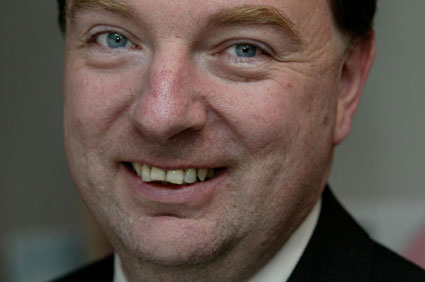Q: You were a very vocal critic of direct marketing three years ago during the media onslaught in summer 2006. Has your perspective on direct marketing changed since then?
Baker: Not dramatically but I’ve been some distance from it for a while – I’m Liberal Democrat Shadow Secretary of State for Transport now but back then I was environment spokesperson. I’m much more removed from it now. But my perspective of it is that it’s got marginally better – it’s a bit more targeted.
Q: How can you tell?
Well, I’m not getting any more complaints from constituents about mail to dead to their dead relatives.
Q: Why did you feel so vociferously about DM?
The big issues of my career include climate change, which was where DM came in. Another issue close to my heart is the transparency of the government’s workings and the relationship between government and the individual. We are being very cavalier about how data is held. It’s not helpful to hold too much data in one place, as something will go wrong.
Q: But the data security breaches we’ve seen in the past two years have been committed by the public sector, not direct marketers.
Security needs to be improved on data holding and people taking data on a memory stick when they’re going to a pub is not sensible. We need to ask what collections of data are being held and why.
The data issue is an aspect of the relationship between the state and individuals – my inclination is not to trust the state too much. The best of guarantee of freedom is not to give the state too much power over individuals.
Q: Which is where the Information Commissioner’s Office comes in.
The ICO has a crucial role to play in society. Richard Thomas did a pretty good job at pushing the boundaries of freedom of information. It’s a difficult job to synthesise the Freedom of Information and Data Protection Act and it’s something that I’ve looked at in some detail. I took a case about information held on me to a tribunal five years ago, which I won.
The MPs expenses scandal has thrown up the difficulty in reconciling the two acts. I was happy with the balance being struck before the scandal, but without the Daily Telegraph we wouldn’t have known about house flipping – the most extreme example of abuse of the expenses system.
Q: So what’s the solution to balancing the two?
I don’t think there is a solution – it’s a question of having a whole lot of case law. The Information Commissioner has a good record in demanding the release of material – in all cases he has succeeded, with the exception of the Iraq war. So in that sense Richard Thomas was a successful Information Commissioner.
Q: Any message for the new ICO, Christopher Graham, who starts work today?
Be calm, be courageous and don’t be put off by those who want to carry out their activities in secret.
Q: With respect to direct marketing?
I never said direct marketing was not legitimate. But in order to satisfy the environmental objective it needs to be better at managing its carbon footprint. If it can be more specific in its targeting, it reduces waste and makes direct marketing more relevant. The industry needs to make it easier to opt out and to see that identifying people who don’t want to be marketed to directly as a help.
Q: But do you accept that there are people who may not know what they do and don’t want to receive?
There are some who may fall into that category and it would be helpful to the [DM] industry to know who they were.
Q: Do you see a time when DM will be on your radar again?
If I end up with the environment brief once more, no doubt I will come back to it and if data’s being misused or inappropriately held, then yes.
- ends -


